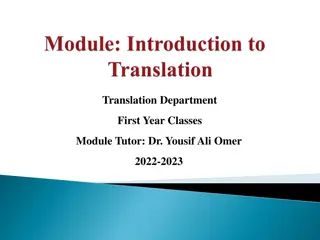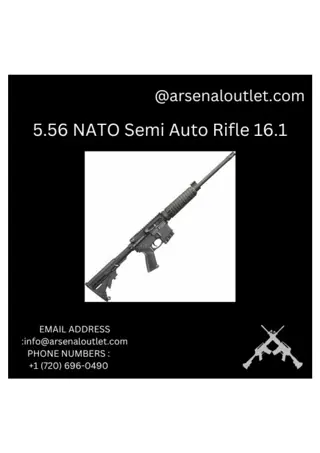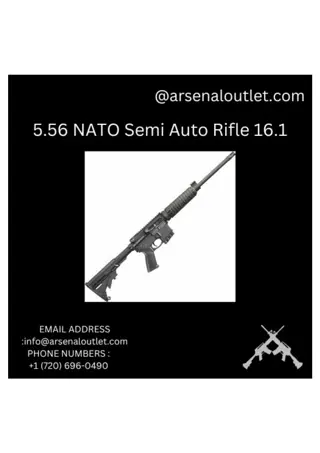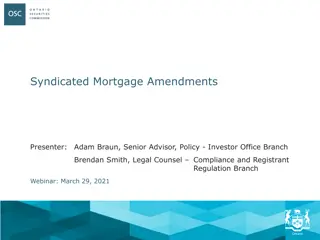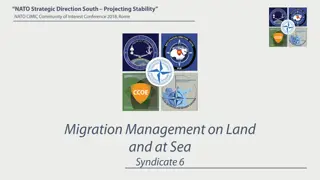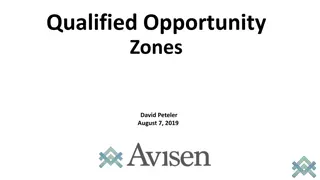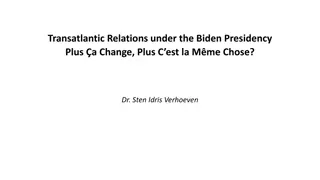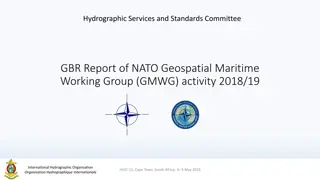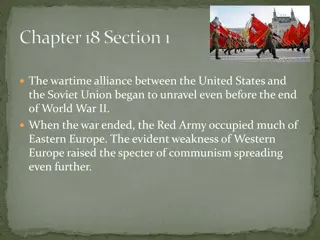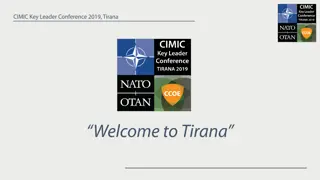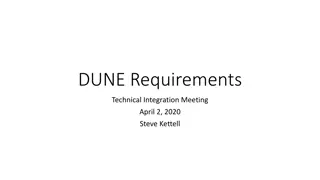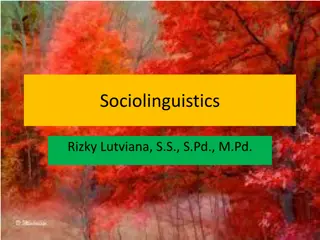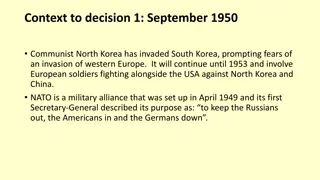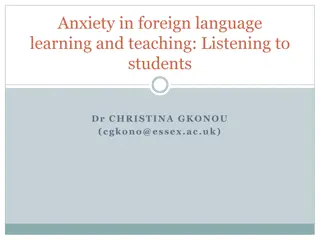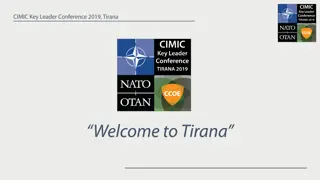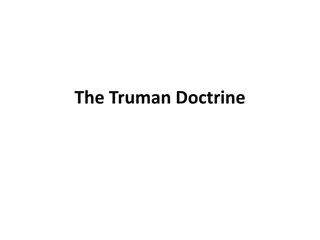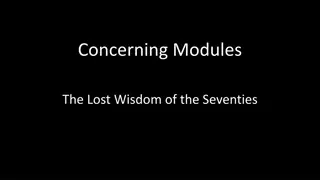NATO Language Requirements for Qualified JTACs: Insights and Challenges
Exploring the NATO language requirements for Joint Terminal Attack Controllers (JTACs) reveals crucial insights and challenges faced by certified JTACs in meeting language proficiency standards. The presentation delves into differences among NORDEFCO countries, emphasizing the high-stakes language testing that impacts career paths. With a focus on improving operational and technical language proficiency, the analysis highlights the need for consistent adherence to NATO STANAG standards for effective communication in close air support operations.
Download Presentation

Please find below an Image/Link to download the presentation.
The content on the website is provided AS IS for your information and personal use only. It may not be sold, licensed, or shared on other websites without obtaining consent from the author.If you encounter any issues during the download, it is possible that the publisher has removed the file from their server.
You are allowed to download the files provided on this website for personal or commercial use, subject to the condition that they are used lawfully. All files are the property of their respective owners.
The content on the website is provided AS IS for your information and personal use only. It may not be sold, licensed, or shared on other websites without obtaining consent from the author.
E N D
Presentation Transcript
SLP shopping; how to nip it in the bud? STANAG STANAG certificates certificates hardly hardly used used!! !!
JTACs, FACs, CAS; what its all about JTACs (joint terminal attack controllers) used to be referred to as FACs (forward air controllers). They are highly specialized ground personnel who guide and direct aircraft fire in CAS (close air support) operations.
The scope of this presentation Based on the situation in the Danish JTAC community. But corroborated by input from the other NORDEFCO countries (SWE, NOR, FIN). In all four countries JTACs go through high-stakes language-testing that has the potential to make or break their chosen career paths.
Differences and similarities However, though NORDEFCO JTAC test results are quite similar, there are national differences: SWE and NOR mainly test JTAC applicants (and the SWE ones score considerably better). FIN primarily tests JTAC trainees in the pipeline . DNK mostly tests certified, operational JTACs.
NATO language requirements for qualified JTACs NATO STANAG 3797 ATP 3.3.2.2. Joint Terminal Attack Controller Program: Possession of a documented SLP LSRW of 3332 IAW STANAG 6001 when the individual is not a native English speaker. The use of operational and technical language in the development of English proficiency of the JTAC is highly recommended ( ...)
NATO language requirements for qualified JTACs JTAC Memorandum of Agreement: Language proficiency must meet standards as defined in NATO STANAG 6001 . It is a national responsibility to ensure JTACs meet this standard .
Main observations, based on comprehensive input but limited numbers The Danish Armed Forces have a total of 31 certified JTACs currently operational; 27 have been tested in accordance with the current NATO requirement. Officers do much better (37 pct meet the language requirements) than NCOs (16 pct), but neither group does well.
JTACs (OR-2 to OR-8) tested for SLP 3332 JTAC applicants; SLP achieved 2+ 2+ 3 2 2+ 2+ 3 2 2 2 2 1+ Trained JTACs; SLP achieved 3332 3332 3332 3 2+ 3 2 2+ 3 3 2 3 2+ 3 2 2+ 3 2+ 2 3 2+ 2 2 2+ 3 2 2 2 2+ 3 2 3222 2+ 2+ 2+ 2+ 2+ 2+ 2 2 2 2 2+ 2 2 2+ 2 2 2 2+ 2 2 2222 2222 2222 3/19 0/3
JTACs (OF-1 & OF-2) tested for SLP 3332 JTAC applicants; SLP achieved 3332 Trained JTACs; SLP achieved 3332 3332 3332 3 2+ 3 2 3322 33 2 2322 2322 3/8 1/1
What are the responses in the Danish JTAC community? The good: There s been a mistake. The certificate doesn t show the required SLP. You have to issue a new one. The bad: Can t you simply change the 2s into 3s? The ugly: We should have them take the test in X-land; nobody fails there .
Questions raised.. Would SLP shopping be a problem? Would testing centers in other NATO countries be authorized (and willing) to perform testing for non- nationals? Do the Danish Armed Forces have a policy on whether we would accept certificates acquired in other countries? The BILC recommendation: On an agreed bilateral basis, nations may accept STANAG 6001 certificates from other nations recognized Defence Language Testing Organizations.



